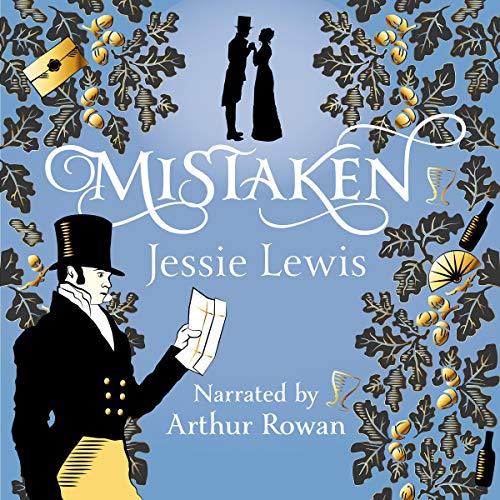 Mailbox Monday has become a tradition in the blogging world, and many of us thank Marcia of The Printed Page for creating it.
Mailbox Monday has become a tradition in the blogging world, and many of us thank Marcia of The Printed Page for creating it.It now has it’s own blog where book bloggers can link up their own mailbox posts and share which books they bought or which they received for review from publishers, authors, and more.
Leslie, Martha, and I also will share our picks from everyone’s links in the new feature Books that Caught Our Eye. We hope you’ll join us.
Here’s what we received:

A tempestuous acquaintance and disastrous marriage proposal makes it unlikely Mr. Darcy and Elizabeth Bennet will ever reconcile. Despairing of their own reunion, they attend with great energy to salvaging that of Darcy’s friend Mr. Bingley and Elizabeth’s sister Jane. People are rarely so easily maneuvered in and out of love, however, they follow a series of misunderstandings, both willful and unwitting, that complicates all four star-crossed lovers’ alliances more than ever before.
A witty and romantic novel that delights in the folly of human nature and also honors Austen’s original Pride and Prejudice and holds appeal for listeners of all genres.

Judas Coyne is a collector of the macabre: a cookbook for cannibals…a used hangman’s noose…a snuff film. An aging death-metal rock god, his taste for the unnatural is widely known. But nothing he possesses is as unlikely or as dreadful as his latest discovery, a thing so terrible-strange, Jude can’t help but reach for his wallet.
I will sell my stepfather’s ghost to the highest bidder.
For a thousand dollars, Jude will become the proud owner of a dead man’s suit, said to be haunted by a restless spirit. He isn’t afraid. He has spent a lifetime coping with ghosts: of an abusive father, of the lovers he callously abandoned, of the bandmates he betrayed. What’s one more? But what UPS delivers to his door in a black heart-shaped box is no imaginary or metaphorical ghost. It’s the real thing.
And suddenly the suit’s previous owner is everywhere: behind the bedroom door…seated in Jude’s restored vintage Mustang…standing outside his window…staring out from his widescreen TV. Waiting – with a gleaming razor blade on a chain dangling from one hand.
What did you receive?


 In
In  Timmins’ inn—on the outskirts of a village, surrounded by woods—as well as the events that take place there, which are, at least at the beginning, pretty frightening for our dear couple. Thus, The Dancing Bear was conceived.
Timmins’ inn—on the outskirts of a village, surrounded by woods—as well as the events that take place there, which are, at least at the beginning, pretty frightening for our dear couple. Thus, The Dancing Bear was conceived. The room in which Darcy and Elizabeth spend most of their time in the story belongs to Mr Timmins’ sister, who acts as a housekeeper-come-cook. Her role is pertinent because it demanded certain features be in the room that were essential to the story. I took the inspiration for this room from the housekeeper’s apartments at the beautifully restored Regency Townhouse in Brighton (a visit to which I heartily recommend to anyone interested in Regency life). The room at the townhouse (pictured) differs from the one in
The room in which Darcy and Elizabeth spend most of their time in the story belongs to Mr Timmins’ sister, who acts as a housekeeper-come-cook. Her role is pertinent because it demanded certain features be in the room that were essential to the story. I took the inspiration for this room from the housekeeper’s apartments at the beautifully restored Regency Townhouse in Brighton (a visit to which I heartily recommend to anyone interested in Regency life). The room at the townhouse (pictured) differs from the one in  Purpose-built for a housekeeper by the C19th architect, it has a large walk-in cupboard where she would have kept all the most expensive domestic items carefully locked away. You’ll have to read the story to find out why this was such an important feature to have in the room, though…
Purpose-built for a housekeeper by the C19th architect, it has a large walk-in cupboard where she would have kept all the most expensive domestic items carefully locked away. You’ll have to read the story to find out why this was such an important feature to have in the room, though… The taproom at The Dancing Bear is themed around the interior of a wonderful old hotel in my own hometown of Hertford. The Salisbury Arms (originally The Bell) is a coaching inn dating back to the fifteenth century. It has two front parlours, a taproom and a restaurant; three more rooms than I gave The Dancing Bear, which only has one taproom. The gorgeous old room in this picture shows the mixture of bricks, plaster and timber frame that I imagine made up the walls of Mr Timmins’ humble inn.
The taproom at The Dancing Bear is themed around the interior of a wonderful old hotel in my own hometown of Hertford. The Salisbury Arms (originally The Bell) is a coaching inn dating back to the fifteenth century. It has two front parlours, a taproom and a restaurant; three more rooms than I gave The Dancing Bear, which only has one taproom. The gorgeous old room in this picture shows the mixture of bricks, plaster and timber frame that I imagine made up the walls of Mr Timmins’ humble inn. writing about can prove problematic if I don’t have a clear idea of that space. Characters can end up whispering to someone too far away to hear, walking through a door that wasn’t there moments before, sitting down in a chair where another character is already perched … the potential for pitfalls is endless. I find that having in mind a particular room I’ve visited or seen in a photo, or even sketched out on paper, helps me better inhabit the space I’m describing, thereby ensuring that what I write makes sense. The way the furniture is arranged in a circle around this particular room, with one chair closest to the door, from which a person might hold a quiet conversation with someone half-in and half-out of the room whilst everyone else talks amongst themselves, proved remarkably useful to a certain gentleman protagonist in
writing about can prove problematic if I don’t have a clear idea of that space. Characters can end up whispering to someone too far away to hear, walking through a door that wasn’t there moments before, sitting down in a chair where another character is already perched … the potential for pitfalls is endless. I find that having in mind a particular room I’ve visited or seen in a photo, or even sketched out on paper, helps me better inhabit the space I’m describing, thereby ensuring that what I write makes sense. The way the furniture is arranged in a circle around this particular room, with one chair closest to the door, from which a person might hold a quiet conversation with someone half-in and half-out of the room whilst everyone else talks amongst themselves, proved remarkably useful to a certain gentleman protagonist in 
 About the Author:
About the Author: Source: Meryton Press
Source: Meryton Press About the Author:
About the Author:










